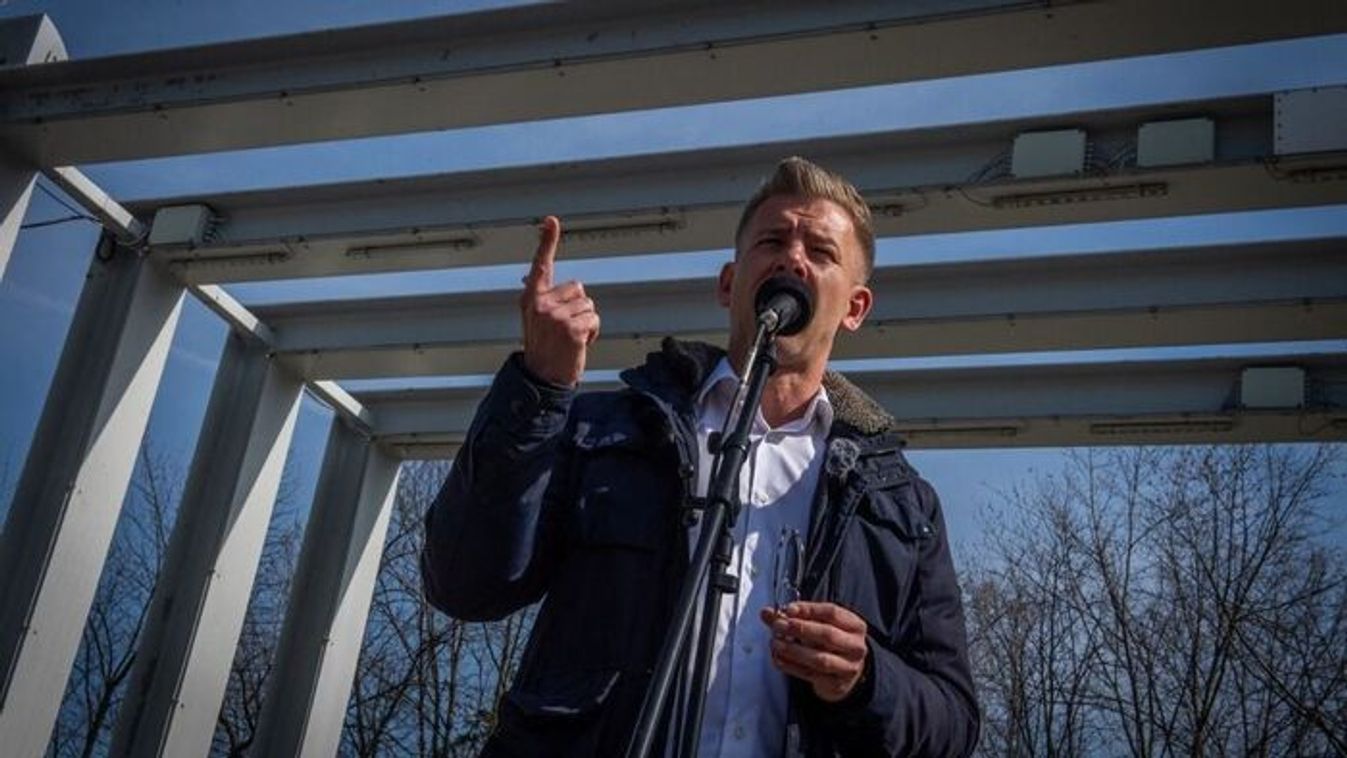Itt a legfrissebb közvélemény-kutatás: így áll most a Fidesz és a Tisza Párt

Továbbra is zajlik a közvélemény-kutatások „háborúja”, utánajártunk, mekkora a valós különbség a Fidesz és a Tisza között.

Just months ago the Együtt 2014 (Together 2014) movement seemed to embody a new wave of opposition politics in Hungary. This was, it appeared, an emerging power capable of focusing the scattered energies of the leftist and liberal opposition into a single, powerful force. But as quickly as it rose, Együtt 2014 has fallen back into the ranks of small-party neophytes. They may have smart party leadership, but Együtt 2014 lacks something vital: an organization with real activists and supporters.
In the last 20 years, the Socialist Party (MSZP) was the most influential, well-established party in Hungary and among the strongest of the communist successor parties in the region of central and eastern Europe. But in 2010 it suffered a landslide defeat to Viktor Orbán's conservative Fidesz party. The longtime challenger suddenly enjoyed a two-thirds majority in parliament. Cast into the wilderness, former Socialist Prime Minister Ferenc Gyurcsány formed a small new party called Demokratikus Koalíció (Democratic Coalition, or DK). Former Prime Minister Gordon Bajnai, who served in the Gyurcsány Government as minister of development and economy and became head of government when scandal and falling popularity forced Gyurcsány to step aside, returned to Hungarian political and economic life.
While many commentators aligned with the opposition have, since 2010, been fueling expectations of Bajnai’s heroic return to politics, he waited until the end of 2012 to re-engage (see our previous post about Bajnai’s dilemmas here). Együtt 2014 formed in the early autumn of 2012, when the civic movement called Milla, the Szolidaritás trade-union movement, and Bajnai’s Haza és Haladás (or, Homeland And Progress) think tank joined forces. The aim of this well-planned but fragile combination was to gather a number of the most credible opposition political forces and then find some modus for cooperation with the still organized and influential Socialist Party (MSZP), which despite its recent decay remains the biggest of the opposition parties. (See also our post about Milla here.)

It hasn’t worked out so well. The most credible parliamentary party on the liberal Left, LMP (Politics Can Be Different), snubbed Együtt 2014's offer to form a closer cooperation. It was not an easy decision for LMP: half the party was in favor of an alliance, with the other half, including group leader András Schiffer, opposed to it. The debate nearly tore the party apart, but in the end LMP rejected the offer and Schiffer kept his job. Now, LMP seems to be united behind a strategy firmly grounded in its very name and original identity -- that is, a party that emerges from an aging, rotten political system and its declining parties and politicians -- but as the elections come closer, tensions may again ignite.
After Együtt 2014 failed to reach swift agreement with LMP, they turned to the old Socialist party and its satellites. Here’s the twist: while Bajnai and his allies proclaimed that Együtt 2014 would form the core of a new and broad opposition coalition, they ended up in the embrace of their old Socialist comrades, who have no intention of giving up their own bastions to the newcomers as they warm up for the next campaign.
Early this year, the MSZP, Gyurcsány's DK, Bajnai's Együtt 2014 and other satellite groups like the Social Democrats met for discussions about their coalition’s foundations. The discussion was not initiated by these new forces of the opposition, but rather by the Socialists. The very first statement to emerge from the discussion regarded the need for a new constitution - though the ink is still wet on the constitution passed in 2011 by a two-thirds majority of the current parliament.
Even if one enjoys watching the ideological sparring or the pas de deux of ambitious political players, it would seem safe to say that political newcomers and the faded dreams of political dinosaurs are not wildly popular – particularly in light of the current constitution’s recent passage by a stable government with a constitutional majority. The idea of a new constitution following a new constitution by mere months is unrealistic. So is the promise that the Left’s hypothetical future majority will graciously invite the Right to formulate a new text for a new constitution.
Participants in the new opposition coalition’s discussions reported a positive, amicable atmosphere – though that was probably not due only to the soothing exercise of collective daydreaming. It may have had something to do with all the familiar faces from Socialist circles and even family! Együtt 2014 delegated Péter Bárándy, a former minister of justice in the Socialist Government of Péter Medgyessy. Meanwhile, the Socialists delegated his son, Gergely Bárándy, to the discussions. Tibor Szanyi, a talkative and usually straightforward representative of MSZP wrote on Facebook: "I see these ’reconciliations‘, it is exciting that almost every participant comes from the MSZP kennel. Sometimes the atmosphere is even 'familial'...;)"
What else could we add? In the coming weeks, Socialist and post-Socialist politicians will discuss the different topics of their possible cooperation –– in a familiar, or perhaps familial, way. After all the pledges and promises, the new opposition turns to out to be the same old, same old.